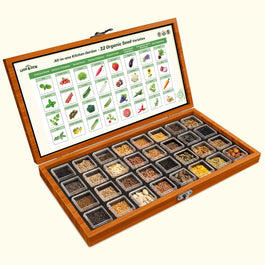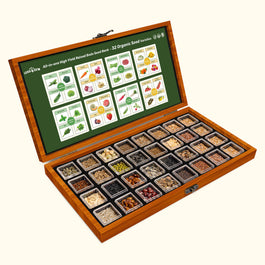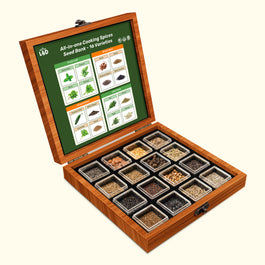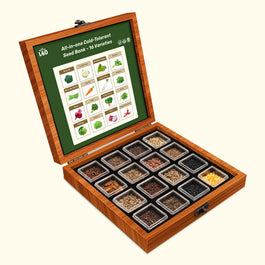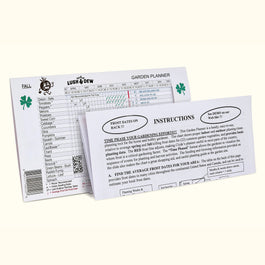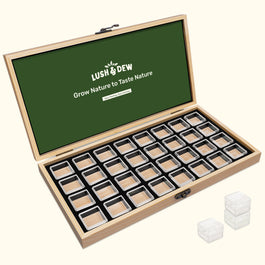Benefits of Growing Your Own Food
Growing your own food, especially in a summer garden, offers a multitude of benefits that go beyond just the satisfaction of nurturing plants.

- Freshness & Flavor -
Homegrown fruits, vegetables, and herbs are harvested at peak ripeness, ensuring superior flavor and nutritional content compared to store-bought produce.

- Nutritional Value -
By growing your own food, you have control over the use of organic practices and can avoid pesticides and chemicals, leading to healthier, nutrient-dense crops.

- Environmental Benefits -
Home gardening reduces the carbon footprint associated with transporting produce long distances. It also promotes biodiversity and supports local ecosystems.

- Customization & Variety -
Home gardeners have the freedom to grow a wide range of vegetables, fruits, and herbs tailored to their tastes and preferences. Experimenting with heirloom varieties or exotic plants adds excitement and diversity to meals.

- Physical & Mental Health -
Gardening is a therapeutic activity that promotes physical exercise, reduces stress, and improves mental well-being. Spending time outdoors in the sunshine can boost vitamin D levels and overall mood.

- Cost Savings -
No need to pay for transportation or packaging costs associated with store-bought produce. Growing your own food can save money in the long run, especially when considering the rising costs of grocery store produce.
Start Your Summer Garden from Seed
Embrace the joy of nurturing life and transforming your outdoor space into a vibrant summer garden, starting from just a handful of seeds. Whether you’re a seasoned gardener or a complete novice, starting your garden from seed is a rewarding and fulfilling experience.
Choosing Seeds
Select a variety of seeds suited for summer planting. Consider vegetables, herbs, and flowers that thrive in warm weather.
Prepare the Soil
Make sure the soil is nutrient-rich and well-drained. Add compost or organic matter to improve soil quality.
Sowing Seeds
Generally, plant seeds at a depth twice their diameter. Space seeds properly to avoid overcrowding, which can lead to competition for light, water, and nutrients.
Watering & Care
Keep the soil consistently moist but not waterlogged. Water gently to avoid displacing seeds.
Transplanting Seedlings
Once seedlings have grown strong, transplant them to their final growing spots, ensuring they have enough space to mature.
Maintenance & Harvest
Weed, water and fertilize your garden regularly. Harvest produce and flowers as they mature and enjoy the fruits of your labor.

Soil Quality
Use a light, well-draining seed starting mix rather than regular garden soil, which may be too heavy and compacted for delicate seedlings. If reusing containers, sterilize them with a mild bleach solution to prevent disease.

Temperature
Most summer seeds germinate best at temperatures between 70°F and 85°F (21°C to 29°C). Use a seedling heat mat to maintain a consistent soil temperature, especially if indoor temperatures fluctuate.

Moisture
Keep the soil consistently moist but not waterlogged. Overwatering can lead to mold and root rot. Use a spray bottle or a gentle watering can to moisten the soil evenly. Bottom watering can help prevent overwatering and disturbing seeds.

Light
Once seeds have germinated, they need plenty of light to grow strong and healthy. Aim for 12-16 hours of light per day. Rotate seed trays regularly to ensure even growth and prevent seedlings from leaning toward the light. Consider using grow lights if natural light is insufficient. Ensure seedlings are not too far from the light source to prevent legginess. (For newly germinated seeds, indirect light is preferable to avoid scorching.)

Timing
Begin your seeds indoors 6-8 weeks before the last expected frost date in your area. This gives your plants a head start, ensuring they are strong enough for transplanting when the weather warms up. Ensure that the soil temperature is consistently above 60°F (15°C) before sowing seeds directly outdoors or transplanting seedlings. Cool soil can delay germination and slow down plant growth.










